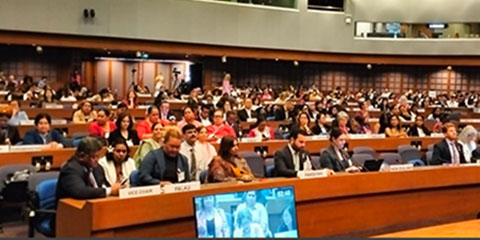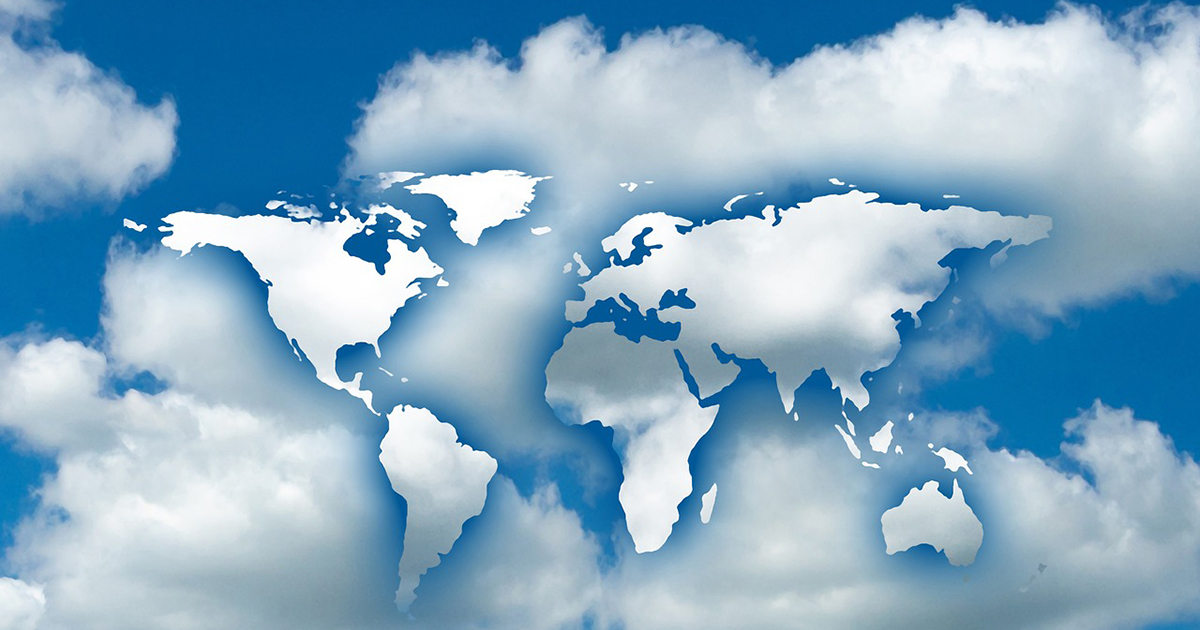Asia-Pacific leaders reaffirm gender equality goals at Beijing+30 review
JournalismPakistan.com | Published: 21 November 2024 | Myra Imran
Join our WhatsApp channel
During the Asia-Pacific Ministerial Conference on the Beijing+30 Review, Pakistan emphasized its commitment to gender equality and women's empowerment. The conference brought together regional leaders to assess progress since the historic 1995 Beijing Declaration.Summary
BANGKOK—Pakistan pledged to strengthen digital access, enhance economic opportunities, and ensure the effective implementation of gender-responsive budgeting for women, besides urging regional cooperation on resilience against climate change at the 'Asia-Pacific Ministerial Conference on the Beijing+30 Review' inaugurated in Bangkok on Tuesday.
Advisor Law and Justice Aqeel Malik led Pakistan's delegation at the conference. While presenting the country's statement, he said that Pakistan remains committed to upholding international obligations for gender equality and protecting vulnerable groups. "The nation celebrates progress in empowering women while recognizing that true gender equality is yet to be achieved. Reaffirming its dedication to the Beijing Platform, Pakistan pledges to continue building a future where all women and girls can fulfill their potential." He said that Pakistan's commitment to the Beijing Declaration and Platform for Action is reflected in its extensive initiatives to empower women across economic, social, and legal domains. Pakistan has taken significant steps towards achieving gender equality and enhancing women’s representation across political, judicial, civil, and human rights spheres, fostering a more inclusive society.
Aqeel Malik said that articles 25, 26, 27, and 34 of the Constitution of Pakistan underscore gender equality and prohibit gender-based discrimination and these principles lay the foundation for Pakistan’s National Gender Policy Framework 2022 and Vision 2025 which prioritize women's roles in governance, economic development, education and security. He also mentioned the Prime Minister Initiative for Women Empowerment which provides women with interest-free loans, skills training, and day-care centers for working women while highlighting initiatives like the Women Pink Bus service and the Women on Wheels Project launched by the Government of Pakistan to improve women’s mobility for their participation in economic activity.
Regarding initiatives taken for the financial empowerment of women, he talked about policies such as Banking and Equality, and the revolving Financing Facility for Women Entrepreneurs that targets the financial inclusion of women as well as the National Financial Inclusion Strategy 2023 that has surpassed its target of 20 million active bank accounts for women. He also briefed the participants about the Benazir Income Support Program which has supported women through the allocation of Rs. 200 billion for welfare initiatives.
About women's political participation, he mentioned reserved seats for women in the Parliament and prominent women political leaders who reached the highest government positions such as Shaheed Benazir Bhutto, the first female Prime Minister of the Islamic World, and Maryam Nawaz, currently serving as Chief Minister of Punjab. In the judiciary, he said that the appointment of Justice Ayesha Malik and Justice Musarat Hilali to the Supreme Court of Pakistan is a landmark advancement for women in law. He said that across Pakistan, approximately 565 women serve in Pakistan’s district judiciary, representing around 19 percent of all district judges.
He said that all the Commissions in Pakistan are headed by women. On the international stage, he said that Pakistan has emerged as a leader in women’s participation in peacekeeping, with over 500 female peacekeepers deployed making 19.1 percent of Pakistan’s contingent exceeding the UN’s 15 percent target for female staff officers. In peacekeeping. On violence against women, he said that the state of Pakistan has a firm resolve to address VAW by developing robust constitutional, legislative, institutional and administrative framework.
While celebrating hard-won victories in women's rights since the 1995 Beijing Declaration, Asia-Pacific leaders acknowledged the long road ahead as they gathered in Bangkok to participate in the three-day Ministerial Conference. Over 1,200 delegates from governments, civil society, and youth groups from all around the region are participating in the conference with renewed vigour to find answers to the crucial question how far has the region come since the historic 1995 Beijing Declaration that promised an equal world for women?
Jointly organized by the United Nations Economic and Social Commission for Asia and the Pacific (ESCAP) and UN-Women, the three-day conference is being held ahead of next year’s 30th anniversary of the Beijing Declaration and Platform for Action. The landmark international commitment that continues to shape policies toward gender equality. “Where new opportunities emerge, we must ensure women and girls are positioned to thrive,” ESCAP Executive Secretary Armida Salsiah Alisjahbana underscored in her opening remarks, adding that women must be at the forefront of the issues that define our common future such as climate action and digital transformation. “These are the megatrends of our time, and without a focus on gender equality, they risk deepening inequalities. We must provide women with the tools, training, and resources to lead in these areas to ensure they not only participate in but also drive forward the solutions of tomorrow,” Alisjahbana said. “As we look forward, the Beijing+30 Review offers us a unique opportunity to galvanize political will and public engagement to accelerate the implementation of the Beijing Platform for Action,” said Sima Bahous, UN Women Executive Director. “Let us take this moment to recommit to the principles of the Beijing Platform for Action, ensuring that women and girls in our region are at the center of our economic, social, and political agendas. We must continue to push forward with bold actions that not only address current challenges but also pave the way for future generations to thrive.”
At the conference, ESCAP and UN Women also launched a new report Charting New Paths for Gender Equality and Empowerment: Asia Pacific Regional Report on Beijing+30 Review. The report highlights the challenges ahead, but also forward-looking strategies and solutions under six thematic areas: poverty reduction and human capital development; shared prosperity and decent work; freedom from gender-based violence; meaningful participation and gender-responsive governance; peaceful and just societies; and gender and the environment. The report further emphasizes three pivotal actions to strengthen the foundation for accelerating progress in gender equality across all sectors, including transforming gender norms; strengthening the collection and use of gender data; and fostering gender-smart investments and cross-sectoral partnerships.
KEY POINTS:
- Pakistan pledged to enhance economic opportunities and digital access for women.
- The country showcased various initiatives aimed at gender-responsive budgeting.
- Over 1,200 delegates participated in the three-day conference addressing gender equality.
- The conference highlighted the need for collaboration on climate action and digital transformation.
- A new report was launched, focusing on future strategies for gender equality in the region.

























